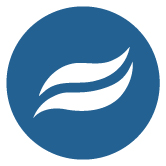

|

|
| Major: 6250N
Catalog Year: 2023-2024
Effective Term: 2018 Fall
Last Admit Term: 2023 Summer
Award: AC Total Credits: 12 CIP Code: 51.0913 |
Primary College: Rio Salado College
Initiating College: Rio Salado College
Program Availability: Not Found
Program Availability: College-Specific
Field of Interest: Health Sciences
Instructional Council: Exercise Science, Health & Physical Education, Recreation & Wellness(32) GPA: 2.00 |
|
SOC Code: 29-9091
| |
|
Program Prerequisites: None
|
|||||||||||
| Required Courses | |||||||||||
|---|---|---|---|---|---|---|---|---|---|---|---|
HES100 Healthful Living 3 | Credits: 12 | ||||||||||
| Restricted Electives | |||
|---|---|---|---|
|
| Credits: | ||
| General Electives | |||
|---|---|---|---|
|
| Credits: | ||
| Program Competencies | |||
|---|---|---|---|
| 1. Identify basic components of wellness, fitness measurements, and the hereditary, psychological, biological and social factors that impact them. (HES100)
2. Describe general nutritional requirements; analyze food labels; identify micro- and macro-nutrients. (HES100) 3. Apply CPR on adult and child victim; use AED on adult victim in a classroom simulation exercise. (HES154) 4. Demonstrate techniques for treating various wounds, injuries, shock, poisoning, burns, sudden illness, environmental (heat/cold) emergencies) and emergency rescue in a classroom simulation exercise. (HES154, HES271) 5. Describe contemporary issues in sports medicine, such as environmental illnesses, nutrition, strength and conditioning, protective equipment, and special populations. (HES271) 6. Identify signs, symptoms, and interventions for selected injuries and illnesses. (HES271) 7. Perform simple rehabilitation techniques, using massage, cryo-therapy, and hydro-therapy in a classroom simulation exercise. (HES271) 8. Select and apply appropriate management techniques for immobilization, transportation and rehabilitation in a classroom simulation exercise. (HES271, HES275) 9. Wrap or tape joints correctly for preventive purposes in a classroom simulation exercise. (HES271, HES275) 10. Integrate knowledge of wellness principles with prevention and treatment of sports related illnesses. (HES275) 11. Distinguish between professions that incorporate rehabilitation or therapeutic interventions and their roles in the recovery process. (HES275) 12. Demonstrate techniques of flexibility and strength training appropriate for rehabilitation from injuries in laboratory setting. (HES275) 13. Define evidence-based practice, scope of practice, and their importance in sports medicine. (HES275) 14. Evaluate emergency action plans and procedures in classroom simulations. (HES275) | |||
|
+ indicates course has prerequisites and/or corequisites.
++ indicates that any suffixed course may be selected. MCCCD Governing Board Approval Date: November 20, 2018 | |||